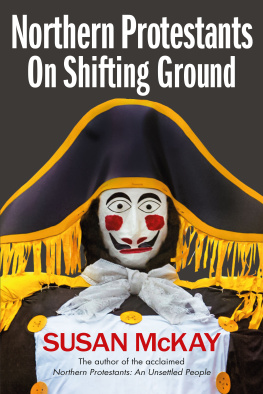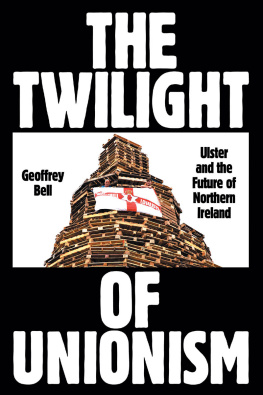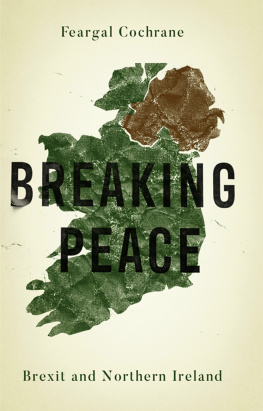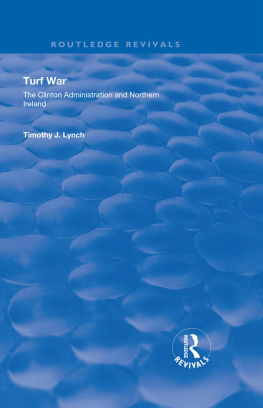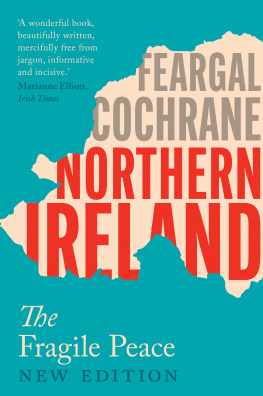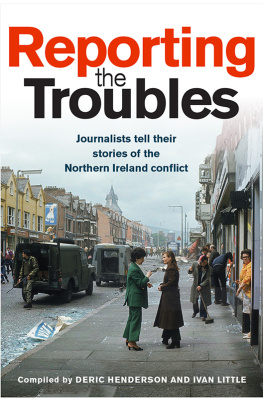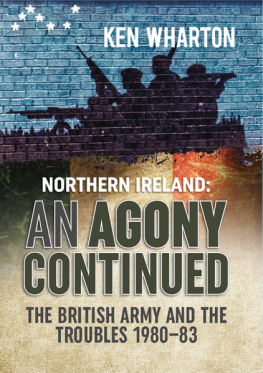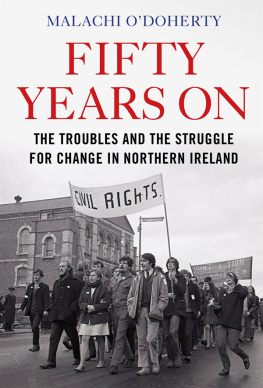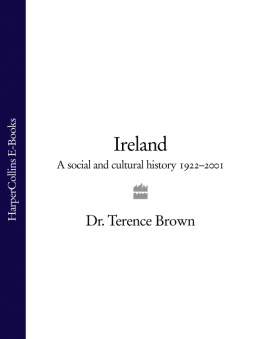Susan McKay is a journalist and author who has won many awards for her work. She is the author of four critically acclaimed books: Sophias Story, Northern Protestants: An Unsettled People, Without Fear: A History of the Dublin Rape Crisis Centre and Bear in Mind These Dead. She was the Northern Editor of the Sunday Tribune and has made a number of radio and television documentaries, including The Daughters Story about the daughters of the murdered musician Fran OToole of the Miami Showband. She was a founder of the Belfast Rape Crisis Centre and from 2009 to 2012 was CEO of the National Womens Council of Ireland. She has made several series of podcasts with survivors of the Northern Ireland conflict for WAVE Trauma Centre. Her writing appears in the New Yorker, New York Times, London Review of Books, the Guardian/Observer and the Irish Times, and she contributes regularly to broadcast media, including BBC and RT. In 2019 she won a Major Individual Artist Award from the Arts Council of Northern Ireland for a book about borders, which will be published in 2022.
PRAISE FOR NORTHERN PROTESTANTS: AN UNSETTLED PEOPLE
Susan McKay is one of Irelands finest journalists This book should be read by the Sinn Fin leadership, Irish Ministers and officials in Dublin and Belfast who are trying to make the new model Ulster a reality for all.
MARY HOLLAND, OBSERVER
This is a wonderful book distressing and uplifting, mysterious and informative Her interviews are both penetrating and sensitive and her comments judicious.
CAL McCRYSTAL, GLASGOW HERALD
an elegantly written, comprehensive and illuminating portrait of Irelands Ulster unionist community long overdue
TOM McGURK, SUNDAY BUSINESS POST
Susan McKay has dug deep into a damaged psyche Instead of contributing yet another dusty treatise, she has interviewed both ordinary and extraordinary Protestants, who have been victims, perpetrators and observers of violence and let them speak for themselves By asking intelligent questions and inserting her own perceptive commentaries, she has updated the insight of Dervla Murphys A Place Apart and provided a sister volume to Fionnuala O Connors definitive work on Catholics.
BARRY WHITE, BELFAST TELEGRAPH
Her writing is sharp, with a gripping sense of immediacy interweaving a very vivid stream of interviews against a sharply observed background.
ANNIE CAMPBELL, IRELAND ON SUNDAY
Essentially a book like this, if it can be widely read and I hope that it is [will allow] people to begin to recognise the degrees of denial that we have and the sense of perception that we have of ourselves which is not shared by others.
DAVID ERVINE, BBC NI HEARTS AND MINDS
She brings to this project the same easy eloquence, eye for detail and fierce compassion which marked her first book, Sophias Story.
EAMONN McCANN, SUNDAY TRIBUNE
Northern Protestants On Shifting Ground
SUSAN McKAY

First published in 2021 by Blackstaff Press
an imprint of Colourpoint Creative Ltd
Colourpoint House, Jubilee Business Park
21 Jubilee Road, Newtownards BT23 4YH
Northern Ireland
With the assistance of the Arts Council of Northern Ireland

Susan McKay, 2021
All rights reserved
The acknowledgements at the end of this book constitute an extension of this copyright page.
Susan McKay has asserted her right under the Copyright, Designs and Patents Act 1988 to be identified as the author of this work.
Printed by GPS Colour Graphics Ltd, Belfast
A CIP catalogue for this book is available from the British Library
ISBN 978 1 78073 264 0
www.blackstaffpress.com
To Mike, Maddie and Caitlin, my beloveds.
And in memory of my dear friend, Mary McPartlan.
I felt the ground shifting There needed to be a steadying of unionism.
JEAN BLEAKNEY
This wish for solid ground. This vulnerable testimony darkness, storms and floods frailty, nakedness, sheer exposure and a love that answers choral calls for some foundation.
from Type Face, by GAIL McCONNELL
PROLOGUE
I had been friendly with Lyra McKee for quite some time when something she had written indicated to me that her background was Catholic. I realised that up until that moment, while I had vaguely supposed her to be Protestant, I really had not given it much thought at all. This delighted me. Maybe it is hard for those not brought up in Northern Ireland during or before the Troubles to understand that old reflex that had people scrambling to categorise everyone new they encountered along sectarian lines. Sometimes the name made it obvious, which was helpful. Sometimes not. There were those who were confident they could tell by the set of the eyes. The poet Scott McKendry told me that his father, a shipyard worker, had a colleague who advised him that you could tell by looking at the back of a persons neck. Some would brazenly just ask. Others would ask leading questions about where you lived or what school you went to, leaving the unspoken question dangle. Sometimes you just privately listened out for clues. You didnt have to care one way or the other. You just did it. It thrilled me to realise I was losing the habit.
Of course, Lyra was a unique person who was wonderfully, explicitly, neither, both, and other. Her murder in Derry at Easter 2019 by dissident republicans shocked and horrified people of all backgrounds and beliefs, and even, briefly, brought the politicians and the churches together. She was killed on the eve of the twenty-first anniversary of the signing of the Good Friday Agreement (GFA). We were meant to be at peace. The gathering at her funeral was like a vision of the community united by respect that the agreement was meant to herald and nurture. In the middle of all the pain and anger, there was something healing in that sense of solidarity. For so long people had been imagining, campaigning, and longing for this place call it Northern Ireland, the North, or the Six Counties to change, and change for good.
This book is about people who are from a Protestant background, including some whose families are mixed, whether through their parents or their own choices. In recent years a term has come into use that attempts to corral everyone in Northern Ireland into a binary of ethnic huddles, Catholic Nationalist Republican on one side, Protestant Unionist Loyalist on the other. The term PUL has caught on more than CNR. I dislike it for its sense of circling the wagons, and it excludes a lot of people. The term loyalist needs to be used carefully. It generally refers to working-class unionists, but it is also often paired with or even used as shorthand for paramilitaries, which reinforces the false notion that the paramilitaries represent the people. Former Progressive Unionist Party (PUP) councillor Julie-Anne Corr-Johnston said she was a unionist and a loyalist. I am unequivocally loyal to preserving that union, she said, And to the political ideology that was outlined in the Ulster Solemn League and Covenant. Minus the violence of course.
I was a child when the Troubles flared up and began to destroy all of us. I learned about the society I had grown up in just as it exploded into rage and violent conflict. My education on democracy began with the revelation that I lived in a state founded upon its distortion. I grew up Protestant in the border city of Derry where the Catholic majority had been excluded from power. I had already heard the old cry of No surrender. So, in the late 1960s, as unionism went on the defensive over the demand for civil rights, I learned that an obdurate refusal to compromise was central both to our history and to the Northern Ireland news. We would not yield. We would not bend the knee. What we had we would hold. And if our backs were against the wall, wed fight.
Next page
